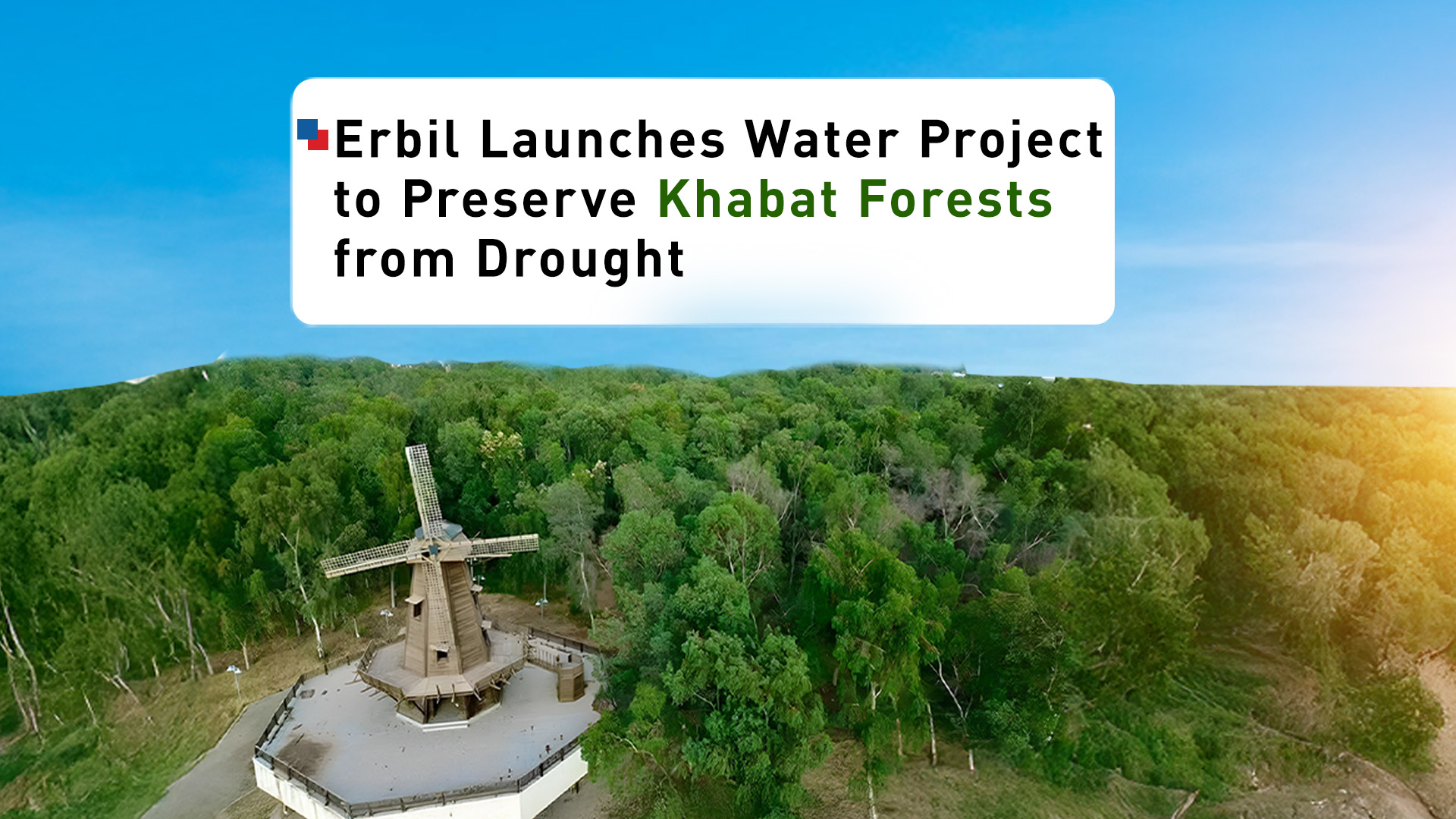Erbil Launches Water Project to Preserve Khabat Forests from Drought
Erbil Governorate has launched a new irrigation project pumping water from the Greater Zab River to preserve Khabat forests from drought. The initiative, funded locally and supervised by the Irrigation Directorate, aims to restore the 400-dunam forest ecosystem.

ERBIL (Kurdistan24) – The Erbil Governorate announced on Friday that it has begun implementing a new irrigation system in the forests of Khabat District, near Erbil city, marking a major step in the Kurdistan Regional Government’s (KRG) environmental strategy to combat climate change and Preserve the areas from drought.
According to the governorate, large portions of Khabat’s forests have withered in recent years due to prolonged drought, declining groundwater levels, and the absence of a sustainable irrigation system. In response, the Erbil administration has launched a project to pump water directly from the Greater Zab River into the forest, establishing a dedicated irrigation station — the first of its kind in the Kurdistan Region.
The project, financed entirely by Erbil’s local budget and implemented under the supervision of the Erbil Irrigation Directorate, aims to restore the forest’s ecosystem and preserve it as a vital green space for the province.
Khabat’s forests, established in the 1950s on an area exceeding 400 dunams, is a vibrant destination for locals seeking recreation and natural beauty. The new project, officials said, seeks not only to revitalize the forest’s environment but also to transform it back into a regional ecological and tourism landmark.
The initiative comes as part of the broader KRG environmental agenda, which has prioritized long-term water management and green infrastructure projects across the Kurdistan Region.
Just a day earlier, Kurdistan Region Prime Minister Masrour Barzani inaugurated the Qushtapa Water Project, a massive undertaking designed to supply clean water to more than 240,000 residents in Qushtapa, Bustana, and 72 surrounding villages.
The Qushtapa project — completed ahead of schedule — draws water from the Little Zab River and delivers it through a 266-kilometer HDPE pipeline network, ensuring reliable water supply for the next two decades. It cost 222 billion Iraqi dinars and was executed entirely through local engineering expertise, symbolizing the KRG’s focus on sustainable infrastructure.
“Qushtapa has the deepest water well in Iraq, between 700 and 750 meters deep, and the water quality is excellent,” said Maher Tahsin, the project’s engineering director, in an earlier statement to Kurdistan24. “This is one of the most strategic water projects ever completed in the region.”
The new Khabat irrigation system is the latest in a series of environmental resilience projects launched across the Kurdistan Region to mitigate drought and protect natural resources.
In Akre District, the KRG’s network of 41 ponds and dams has already sustained agriculture and protected vineyards, fig orchards, and farmlands from the effects of water scarcity. Farmers in Ras al-Ain village credited these efforts for saving thousands of trees during recent droughts.
Meanwhile, in the capital, the Erbil Green Belt Project is transforming the city’s perimeter into a vast environmental buffer. The first phase — spanning 12,900 dunams — is now underway, aiming to increase the city’s green area above international standards and improve air quality and urban livability.
With over eight major dams completed and 24 new ones planned for this year, the KRG has significantly expanded its water retention capacity to more than 160 million cubic meters.
These combined projects — from reviving forests in Khabat to providing sustainable water for communities in Qushtapa — underscore the government’s integrated vision of environmental sustainability, urban planning, and water security.
Through these efforts, Erbil and the wider Kurdistan Region are taking concrete steps toward confronting the realities of climate change, ensuring that vital resources like water and green space continue to support both life and development for decades to come.